09 Mar 2015
Are You Addicted To Love?
Yes, it’s true. You can be addicted to love. This isn’t the same as a sex addiction, although it can manifest certain sexual behaviors. Love addiction means that you are obsessed with being in love, whether with one particular person or with fantasies about love and romance. Love addiction is what we call a process or behavioral addiction. You aren’t hooked on an illegal drug or alcohol. You are addicted to a behavior, a pattern of thoughts and a fantasy of love that isn’t real. Learn to recognize it in yourself and how to get help.
Recognizing Love Addiction
A behavioral addiction like this may not seem as serious as a chemical addiction. You’re not shooting up heroin or drinking vodka in the morning, how bad could this be? Behavioral addictions are destructive in their own ways. It is just as important to recognize harmful patterns of a behavioral addiction and to get help as it is for a drug addict to get sober.
Signs Of Love Addiction
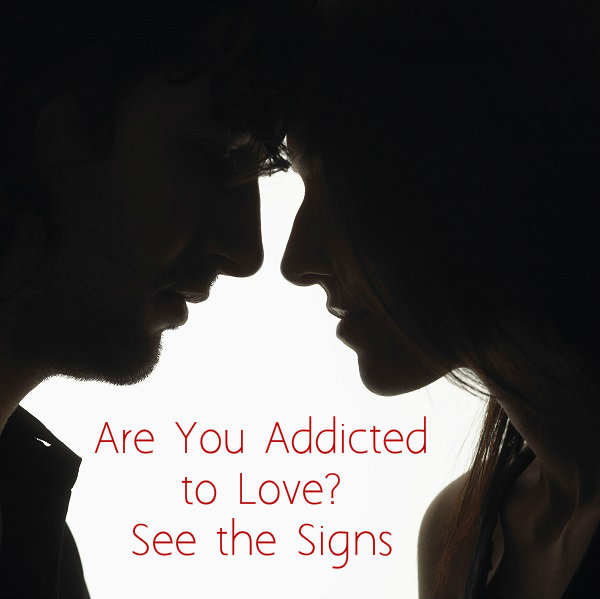 There are a few different ways in which a love addiction can manifest. If you are worried about your current relationship, consider these signs:
There are a few different ways in which a love addiction can manifest. If you are worried about your current relationship, consider these signs:
- You constantly break up and get back together with your current partner.
- Your friends and family tell you they are worried about your relationship or that your partner isn’t good for you.
- You start to fee lost or empty when not with your partner.
- You feel desperate when you break up. You feel like you can’t go on without him.
- When you get back together you feel a sense of euphoria or a high. You break up and make up to chase that feeling.
A love addiction may also be present even when you don’t have one particular partner. You may constantly seek out the euphoric feeling when you first start seeing someone by starting and ending relationships quickly. In other words, you are hooked on the early infatuation of a relationship, but get bored as it becomes routine and normal.
You might also be addicted to love and romance fantasies. Maybe you read romance novels compulsively, one after the other, and dream of having a fantasy love life. You find yourself constantly disappointed with your real-life relationships because they can’t compare with the fantasies you have imagined.
Getting Help For Love Addiction
If you are worried that you might have a love addiction or are headed down that road, recognizing it is the first step. Now you can take steps toward getting better and learning to have healthy and realistic relationships that satisfy your natural need for love and intimacy. If you are in a relationship that seems unhealthy, take a step back. Slow it down and think about ending it if necessary. Talk to your partner about your concerns. If he is not supportive of making changes, it’s probably time to break up.
You should also consider seeing a therapist. A professional experienced in working with love addicts can help you clarify your situation and figure out how to change your attitudes and behaviors toward love and relationships. Also consider joining a support group. There are groups for love addicts, and making social connections with people who understand your situation can be a powerful and healing experience. Here you will be able to share your story without fear of judgment, learn from the stories of others and have new friends to hold you accountable. Love addiction is not drug addiction, but it can be harmful and it hinders your ability to have satisfying relationships. Evaluate yourself now and get help if you feel you need it.
A New Beginning Can Be Yours – Don’t Be Ashamed To Call Us Now For Help – You Deserve Better!
19 Jan 2015
Is Your Partner A Compulsive Gambler?
Gambling can be a fun, and sometimes profitable pastime, but it is an activity that can easily spin out of control. It goes by many names: compulsive gambling, problem gambling and pathological gambling. Whatever you call it, gambling addiction is a serious problem that can lead to severe negative consequences.
Signs And Symptoms That Your Partner Is A Compulsive Gambler
If you suspect that your boyfriend or husband has a problem with gambling, you should learn to recognize the signs of an addiction and sit him down for an important conversation about slowing down or getting help.
Early Signs Of Problem Gambling
No addiction starts out at full speed. If your partner has a problem with gambling it probably started out innocently enough. Maybe he had a big win at a casino trip and wanted to keep trying to win again. Maybe he started playing online poker after work to unwind and now can’t stop.
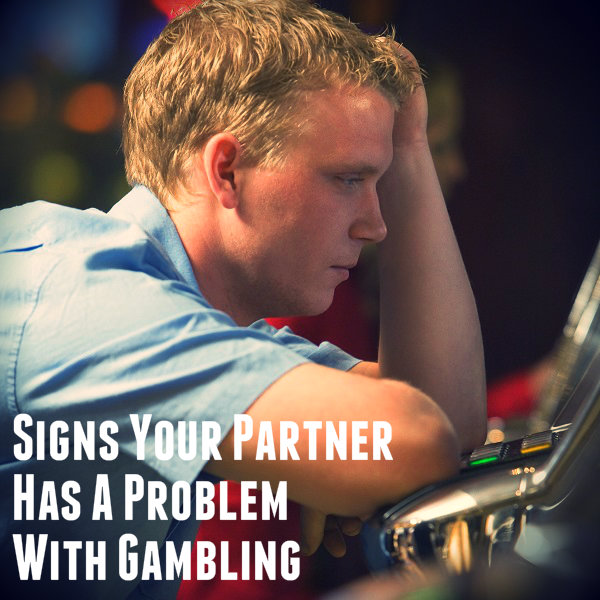 If he is in the early stages of compulsive gambling, you have a good chance of convincing him to make some changes. Early signs and symptoms of gambling include:
If he is in the early stages of compulsive gambling, you have a good chance of convincing him to make some changes. Early signs and symptoms of gambling include:
- A preoccupation with gambling.
- Lying about time spent gambling or amounts of money lost.
- Gambling to soothe negative emotions such as stress, depression or anxiety.
- Cutting out other interests and hobbies in favor of gambling.
- Gambling in spite of negative consequences, such as big losses or arguments about time spent gambling.
- Trying to cut back on gambling time, without much success.
Symptoms Of A Gambling Addiction
The early signs of a gambling problem may be hard to recognize or pin down. They may be mild enough that you and your partner are able to deny that there is an issue. If you don’t confront the problem you could be facing a worsening obsession with gambling and even an addiction or a case of pathological gambling. Here are some signs that your partner has a serious problem with gambling and needs help:
- He feels restless, irritable and anxious when he can’t get to the casino or to an online gambling site. These are symptoms of withdrawal and a sign of a behavioral addiction.
- He has developed a tolerance. This means that his usual time spent gambling doesn’t feel like enough anymore. He needs to spend more and more time gambling to feel good.
- He is experiencing serious financial setbacks because of gambling and yet continues to do it. A hallmark of any addiction is continuing in the face of serious negative consequences. For gamblers, this usually means losing a lot of money. He may even lose his job because of missed time or gambling online while at work.
- He takes extreme measures in order to gamble more. This may mean stealing to fund his habit or taking out big, risky loans.
- He experiences manic episodes when winning and severe depression when losing. His emotions are deeply tied to his gambling.
What To Do If You Believe Your Partner Has A Problem With Gambling
Compulsive gambling is a serious problem and is one that can tear relationships apart. If your partner is exhibiting any of the signs of having this problem, it’s time for an important discussion.
Approach your partner with concern and compassion and suggest that he may have a problem. Explain how his gambling is impacting your life and your relationship and offer to help him quit or cut back. If he refuses help or is in denial, don’t give up. Ask other family members or friends to confront him as well and be prepared with options for getting professional help.
Take steps now, before it is too late and your relationship is completely destroyed by gambling addiction.
Do Heroin And Gambling Addicts Share Similar Brain Changes? – Find Out Now
Do You Or A Loved One Need Help With A Substance Or Behavioral Addiction?
Call Us Now To Take The First Step Toward A New Life…You Are Worth It!
01 Jan 2015
Am I Abusing Alcohol?
If you’ve ever thought about how much you drink, if your habits are healthy or if you abuse alcohol, you’re ahead of most people. Many people abuse alcohol but avoid thinking critically about their actions or what it means.
Do You Have A Problem With Abusing Alcohol?
It’s easier to ignore potential problems with drinking, but it can also be confusing to understand what constitutes normal drinking, alcohol abuse and alcoholism. While alcohol abuse doesn’t necessarily lead to alcoholism, it can put you on that path. Learn more about what this means and find out if you abuse alcohol.
What Is Moderate Drinking?
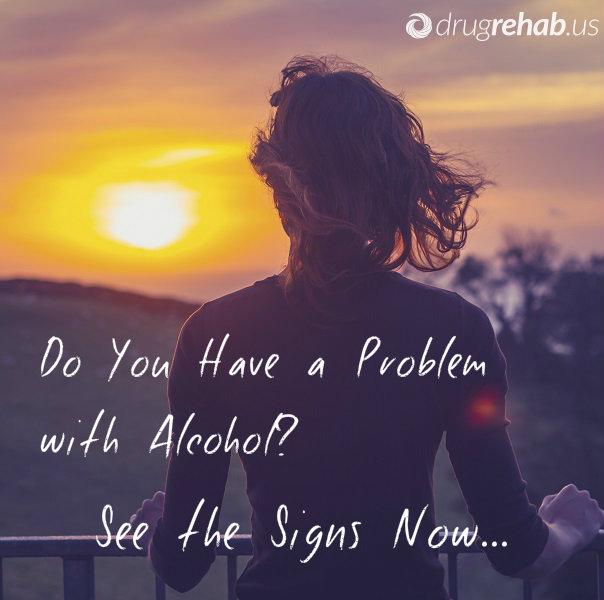 There’s no hard and fast rule for what constitutes alcohol abuse, but there are guidelines for what’s considered to be moderate drinking. Some experts would say that anything over moderate drinking is abuse, while others would argue that this viewpoint is too extreme.
There’s no hard and fast rule for what constitutes alcohol abuse, but there are guidelines for what’s considered to be moderate drinking. Some experts would say that anything over moderate drinking is abuse, while others would argue that this viewpoint is too extreme.
According to guidelines set by the U.S. Department of Agriculture and the Department of and Human Services, moderate drinking for a woman is up to one drink per day and for a man up to two drinks per day.
What Are The Signs Of Alcohol Abuse?
Everyone is different and responds in varied ways to alcohol. Some people can drink more and be less affected. What’s more important than the guidelines for moderate drinking are the behaviors, consequences and motivations regarding your drinking. Look critically at your drinking habits for these signs of alcohol abuse:
- Your drinking causes you to neglect responsibilities – This could mean that you forget to pick up the kids from school or that you can’t drive them to activities because you are under the influence. Maybe you neglect to spend time with an elderly parent because you would rather be drinking.
- You drink to relax or to cope with negative emotions – Using alcohol to feel better is called self-medication and is a sign of abuse. The occasional drink after work to unwind is not usually a problem, but can be when it becomes a habit.
- You drink even when it could be dangerous to do so – For example, when you are about to get behind the wheel of your car or operate another type of machinery.
- You drink in spite of the problems it causes in your relationships – If your partner urges you to drink less and you don’t, or if you fight about your drinking patterns often, you are letting alcohol deteriorate your relationship.
- Your drinking causes legal problems – Such as a DUI or an arrest for behavior caused by being drunk.
What Is Alcoholism?
If you can identify any of the above signs in your behaviors when it comes to drinking, you’re abusing alcohol. It’s important not to confuse this with alcoholism.
Alcoholism means being physically dependent on alcohol. Alcoholics drink a lot every day. They can’t control how much they drink, even if they want to cut down. They feel physically sick if they can’t drink. There are big and important differences between abusing alcohol and being an alcoholic.
How To Change Your Drinking Patterns
Abusing alcohol doesn’t always lead to alcoholism. Most people who abuse alcohol can change their behaviors before it gets to that point. You have the ability to make changes now, for the better.
Enlist the support of a friend or partner and tell this person that you want to cut back. Come up with better ways to cope with stress, such as exercise or meditation. Set goals that are attainable and work toward them.
If you try these strategies and still find it hard to change your patterns, consider working with a therapist or counselor. With a little guidance you can learn to have a healthy relationship with alcohol.
If You Or Someone You Love Is Abusing Alcohol – Don’t Hesitate –
Call Us Now To Begin A Life Of Healing And Freedom!
08 Sep 2014
Straight-A Students And Substance Abuse
Countless parents have had this internal argument: My kid is a good kid. She gets all As at school. She’s an athlete. She couldn’t possibly be using drugs or drinking, right? Unfortunately, some of those parents are wrong. Good kids abuse substances too. Teenage experimentation with drinking or drugs doesn’t always look like the stereotypical burnout. All parents should be aware that substance abuse is everywhere and know the more subtle signs and symptoms.
Teens And Substance Abuse
The good news about teens abusing drugs and alcohol is that the trend is moving downward. Fewer teens drink, smoke, or use most illegal drugs than did a few years ago. Abuse of marijuana has been rising as the perceived risk of this drug goes down. Prescription drug abuse still makes up a significant part of teen substance abuse. Although use rates are declining for most drugs, many teens are still abusing substances and suffering the consequences. Nearly one-quarter of all high school seniors report having used marijuana in the last month, while 15 percent used a prescription drug non-medically.
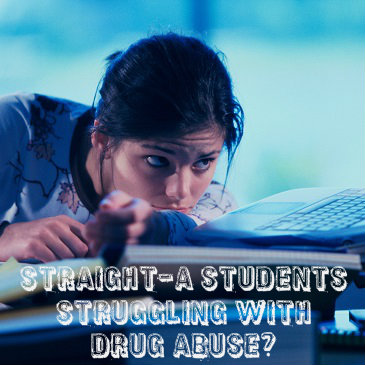 Numbers don’t lie. A lot of teens abuse substances. If you think that your teen is not using simply because she is a straight-A student or because she is popular and on sports teams, or because she is involved in several extracurricular activities, think again. No teen is exempt from the pressures that can lead to experimentation with drugs or alcohol, and many are good at hiding their substance abuse, especially from parents. Here are some of the more subtle signs to look out for in your teen:
Numbers don’t lie. A lot of teens abuse substances. If you think that your teen is not using simply because she is a straight-A student or because she is popular and on sports teams, or because she is involved in several extracurricular activities, think again. No teen is exempt from the pressures that can lead to experimentation with drugs or alcohol, and many are good at hiding their substance abuse, especially from parents. Here are some of the more subtle signs to look out for in your teen:
Teen Substance Abuse Signs
- Changes In Sleep Patterns: Drug and alcohol use impacts sleep in a number of ways. It can make someone sleep more or can lead to insomnia. Look for signs that your teen is staying up later than normal, sleeping in later than usual, or napping more frequently. Also be aware of any signs that she is often tired, such as yawning, bags under her eyes or sleeping in class.
- Missing Important Activities: If your teen is involved in a lot of activities, she may be able to drink or use drugs for a little while before it starts to impact them. Eventually, though, she will start to slide. It may be just a little bit at first. She might be late to one or two events when normally she is punctual. Maybe she decides to give up one of her less important activities.
- Physical Signs: Some of the effects of drug use can’t be covered up. Look for persistent coughing, bloodshot eyes, dilated or pinpoint pupils, an increased appetite, unsteadiness, unusually bad breath, unfamiliar smells or lethargy.
- Secrecy About Money: If your child has always been open about her money and what she spends it on, be concerned if she suddenly becomes secretive. If she doesn’t want you to see her bank account information or go through her purse, be aware that something may be up.
Good Students And Prescription Drugs
You may be right when you say that your straight-A teen would never drink, smoke pot or use street drugs to get high. What many parents of good students don’t realize is that certain prescriptions are abused for academic reasons. Prescription medications for ADHD are popular with ambitious students. These drugs are stimulants and high school and college students are abusing them in record numbers to stay awake and alert for studying and writing papers. Subtle signs of drug abuse in your teen may indicate she is using stimulants because of the pressure she feels to get good grades.
No matter how good your teen is or how successful she is in school, you cannot guarantee that she will not experiment with drugs or alcohol. Always be aware of the potential for abuse and spend time talking with your teen. Make sure she knows she can open up to you and you will be more likely to catch any problems before they go too far.
05 Sep 2014
Discover When Partying Becomes Addiction
Partying can be a fun way to relax and unwind on the weekends and—when done without drugs and only moderate alcohol intake—a healthy way to combat stress. If, however, you are the type of partier who uses illicit drugs or who binge drinks, you could be heading down a dangerous road to addiction, serious health problems and even death. It may be time to question your partying habits and take a hard look at your actions. Are you partying responsibly and moderately? Or are you getting out of control?
When Does Partying Become Addiction?
 Partying may be as innocent as hanging out with friends at a house party with a couple of beers or going to a club for a few hours of dancing, but it can also mean using club drugs, drinking excessively, and making dangerous choices. You may even start partying and using what are considered to be non-addictive club drugs just once a week, but then find that you want to do it more and more. How do you know when you have crossed the line from a fun night out to going out of control and heading down the path to addiction?
Partying may be as innocent as hanging out with friends at a house party with a couple of beers or going to a club for a few hours of dancing, but it can also mean using club drugs, drinking excessively, and making dangerous choices. You may even start partying and using what are considered to be non-addictive club drugs just once a week, but then find that you want to do it more and more. How do you know when you have crossed the line from a fun night out to going out of control and heading down the path to addiction?
Here are some signs of addiction to watch for:
- You daydream about and crave the high you get when using a party drug or binge drinking. When you start to plan your party binges during the day and look forward to them more than once a week, you should be concerned.
- You develop a tolerance. In other words, you need more and more of a drug or alcohol to achieve the high and the euphoria that you crave.
- You start to use drugs or alcohol more often and in greater quantities. With tolerance comes the desire to use more. Be concerned if you start to increase the frequency of drug use or drinking in order to chase your high.
- You make poor decisions while under the influence. A serious aspect of problem drinking and drug abuse is engaging in risky behaviors that negatively impact your life. If you continue to use after getting sick from substance abuse, after missing work, or after getting into legal trouble, you have a problem.
Can You Turn Your Partying Around?
If you are beginning to question how much and how hard you party, you are in a good position to turn things around. Start cutting back right away. If it helps, do so in small steps. Eliminate one night of partying each week. On the nights that you do party, reduce your consumption of drugs or alcohol. Sometimes going cold turkey is not the most successful way to cut back.
Use your friends to help you stay focused on your mission to slow down. Tell everyone that you intend to cut back and ask for support. If any of your friends encourage you to party in spite of your declaration, they don’t have your best interests in mind and you need to let them go. For your nights off from partying, find sober friends to spend time with and engage in fun activities that don’t involve drinking or drugs.
If you try to cut back and find that you can’t do it, you may be further down the road than you thought and you may need professional help. Find an experienced substance abuse counselor or turn to a local support group for more resources. With professional help and the support of your friends and family, you can turn your life around before it is too late.
Addiction impacts all aspects of a person’s life. For a drug addict or an alcoholic, life revolves around getting a fix and chasing a high. Home life and personal life are often the first to suffer while many addicts are able to keep it together at work. Eventually, however, workplace performance will begin to suffer as well. It may get to the point at which you, as a coworker, boss, or employee, begin to notice that something isn’t right. So what do you do?
What If My Boss Is Drinking Or Abusing Drugs?
 When you have a problem at work, you usually turn to your boss for help, right? So what happens when you suspect she is an alcoholic or a drug addict? First, be aware of the signs of drug abusebefore you jump to conclusions. Signs that someone is struggling with addiction usually include significant changes. You may be suspicious if your boss, who is normally reliable, has begun showing up late for work or is missing appointments. Relationships may change as well. Your boss may become more short-tempered with everyone or detached from the rest of the office if she is abusing substances. Addiction also shows up in more obvious ways, such as the smell of alcohol, signs of inebriation, bloodshot eyes and tremors.
When you have a problem at work, you usually turn to your boss for help, right? So what happens when you suspect she is an alcoholic or a drug addict? First, be aware of the signs of drug abusebefore you jump to conclusions. Signs that someone is struggling with addiction usually include significant changes. You may be suspicious if your boss, who is normally reliable, has begun showing up late for work or is missing appointments. Relationships may change as well. Your boss may become more short-tempered with everyone or detached from the rest of the office if she is abusing substances. Addiction also shows up in more obvious ways, such as the smell of alcohol, signs of inebriation, bloodshot eyes and tremors.
If you suspect your boss is abusing drugs or alcohol, you should tread carefully. The best way to try to help your boss and protect yourself is to alert human resources. Your comments will be kept confidential so that there are no repercussions for you later. You may feel like you have a good relationship with your boss and that you can approach her about this, but beware; if she does have a problem, she may be in denial and may take it out on you. Help her, but protect yourself as well.
How Do I Handle A Coworker Using Drugs?
Confronting drug abuse or excessive drinking in a coworker may be a little different than when you suspect your boss. You may feel more comfortable approaching a coworker to have a discussion about your concerns. If you have a close relationship with this person you can talk to him about your concerns. Offer your help and support and be prepared to give it. If you are not comfortable with confronting this coworker you can, as with your boss, approach human resources instead. You should never feel like you have to cover for this person’s shortcomings or be subjected to any inappropriate behavior because of his problems. Your human resource department can help you in these situations and will keep your comments in confidence.
What If I See Someone Putting Others At Risk?
If you work in a typical office setting, a coworker or boss who abuses drugs or alcohol may not cause immediate dangerous consequences. However, there are plenty of work situations in which a person under the influence could cause great harm. For instance, a doctor or nurse or someone who operates machinery could seriously injure or even kill someone while inebriated.
In these situations it is essential that you shed light on the problem immediately to avoid accidents and harm. It is your responsibility to speak up if you see a coworker or your boss putting others at risk. If you cannot confront the person yourself, tell a supervisor or human resources right away. Not only will you be preventing immediate damage, but you will also be helping the addict in the long run.
Do Some Businesses “Reward” Drug Abuse? Find Out Now!
Buprenorphine is a drug that can be used to treat opioid addiction. It comes in two formulations called Subutex and Suboxone. Although these medications are designed and prescribed to help people overcome addiction, some people abuse them to get high. If you love someone battling opioid addiction, pay close attention and make sure he is not abusing the medication that is supposed to be helping him heal.
What Is Buprenorphine?
Buprenorphine is a synthetic opioid drug that blocks withdrawal symptoms. When the addict takes it, he can stop using heroin or painkillers without experiencing the withdrawal that leads many addicts back to substance abuse. Subutex contains buprenorphine alone and is supposed to be used first and for a short period of time. Suboxone includes a second drug, naloxone, which is intended to prevent abuse. It blocks the high that buprenorphine can impart to the user and is designed to be used after Subutex.
Can Someone Abuse Buprenorphine?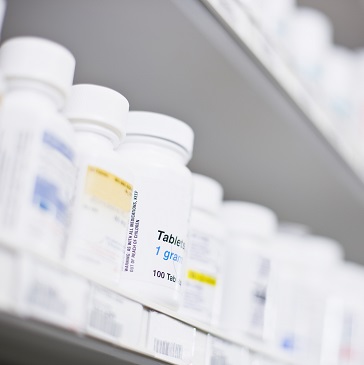
Buprenorphine was the first medication that the Food and Drug Administration allowed to be dispensed from doctors’ offices thanks to its successes in treating opioid addicts. Not all stories of buprenorphine use have been good, though. Some people have abused the medications, and although it is supposed to be impossible to overdose on, there have been deaths associated with Suboxone and Subutex abuse.
It is more difficult to get a high from buprenorphine, and also more difficult to overdose, than other opioids. It is possible, though, and some abusers are desperate enough to use this medication like an illegal drug. Dealers are making a killing selling black market buprenorphine, both to people wanting to abuse it and those wanting to use it as a treatment.
How Can I Tell Someone Is Abusing Buprenorphine?
It is important that you are vigilant with your loved one who has been prescribed buprenorphine. Not everyone realizes that there are risks associated with abusing it. Many are told that you can’t overdose on it, but this isn’t true. Make sure your loved one understands this risk and watch out for signs that he has started abusing his medication.
If you have lived with a drug addict you already know what many of the signs of abuse are. Maybe he has started:
- sleeping more
- missing days of work
- borrowing or stealing money
- having mood swings that seem inexplicable
Watch out for all the usual signs of drug abuse that you have seen before. If he starts acting like he used to when he was using, you should be concerned.
There are also specific symptoms associated with abusing buprenorphine medications. Side effects of the drugs that are possible include:
- flu-like symptoms
- sweating
- headaches
- mood swings
- nausea
- difficulty sleeping
Watch for indications that any of these are getting worse. If he is using more of the medication than directed, the side effects could be intensified. Other signs may include:
- hair loss
- emotional instability
- apathy
- a loss of interest in sex
- watery eyes
- muscle pains and cramping
- impaired memory
- depression or anxiety
Buprenorphine can be a powerful aid in helping opioid addicts get clean and stay clean, but there are risks that are often overlooked. As someone who loves an opioid addict, you should encourage him to use all the tools at hand to beat his addiction, including buprenorphine. But you should also be careful and look for signs that he has turned to his prescription medication for a high. If he has, confront him with love, understanding and patience, and help him to get back on the road to recovery.
If You Or Someone You Love Is Struggling With Addiction – Call Us Now – We Are Here For You 24/7
19 Jun 2014
What’s The Deal With Seniors And Drug Abuse?
Thinking about drug abuse, you probably picture younger people popping pills, shooting up or smoking. What is difficult is to imagine is that there is a rising problem among older adults when it comes to drug abuse. The main culprits are prescription medications. Just because a doctor prescribes them does not mean these drugs are always safe. Many prescriptions are susceptible to abuse and it is not only younger people who have used them inappropriately. In fact, surveys show that abuse among older Americans is on the rise. If you care for an older family member be aware of the issue so you can intervene if necessary.
What Are The Dangers For Seniors Abusing Prescriptions?
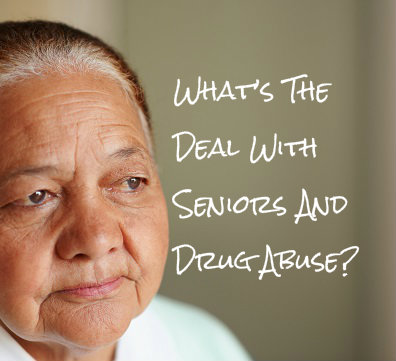 There are several prescription medications that people abuse because of the feelings they impart. For many, the abuse starts slowly and seems harmless. Just how dangerous are these medications when taken against a doctor’s direction? It depends on the medication, but with any drug the side effects will be amplified and intensified when more than the recommended dose is taken.
There are several prescription medications that people abuse because of the feelings they impart. For many, the abuse starts slowly and seems harmless. Just how dangerous are these medications when taken against a doctor’s direction? It depends on the medication, but with any drug the side effects will be amplified and intensified when more than the recommended dose is taken.
For seniors there are particular risks associated with abusing medications. Your older loved one is likely taking several medications. When she abuses one or more of them she increases the risk of a dangerous interaction between two or more medications. She may also have more health problems that could be exacerbated by taking too much of one medication. Of course, at any age there is the very real possibility that drug abuse could lead to addiction.
Which Prescriptions Are Addictive?
Any medication that has addictive potential can be abused. These drugs all give the user a pleasant feeling, which is why they can lead to dependence. Be aware of the medications your loved one is using and educate yourself as to their risks and addictive potential. There are three main classes of drugs that are most often abused: depressants, stimulants and opioids.
Depressants, also known as sedatives, have a relaxing effect on the body. For seniors, the most likely type of depressant to be prescribed is a sleep aid. Stimulants have the opposite effect. They cause wakefulness and alertness and are most commonly prescribed as ADHD medications. Your older friend is unlikely to be prescribed a stimulant. Of greatest concern may be the opioids. These are painkillers that also produce a high when taken in larger doses. Codeine, morphine, oxycodone, hydrocodone, fentanyl and hydromorphone are examples of prescribed opioids.
What Are The Signs Of Abuse?
If you have an older adult in your care, or are concerned about a parent or friend who takes prescription medications, watch out for signs of drug abuse. Look for signs of intoxication. For example, if she slurs her speech, stumbles or falls more often, or if her behavior in general seems off to you, she may be under the influence.
Also look for other signs that may be subtler, such as changes in behavior or routine. She may experience a change in sleeping habits or appetite as a result of abusing medications. You may also observe increasing irritability or confusion. She may act suspiciously as well. For instance, she might make multiple appointments with different doctors in order to get more prescriptions or start going to different pharmacies to avoid suspicion.
Some of these signs of drug abuse may also indicate a new or worsening health problem. In either instance, you should be concerned for the senior in your care. Start a conversation with her and encourage her to see her doctor to discuss options for dealing with the issue.
Read More About Seniors And The Surge In Substance Abuse – And Help Your Loved One Today!


